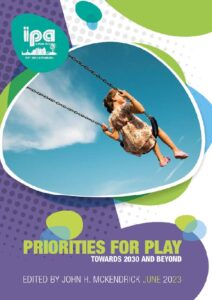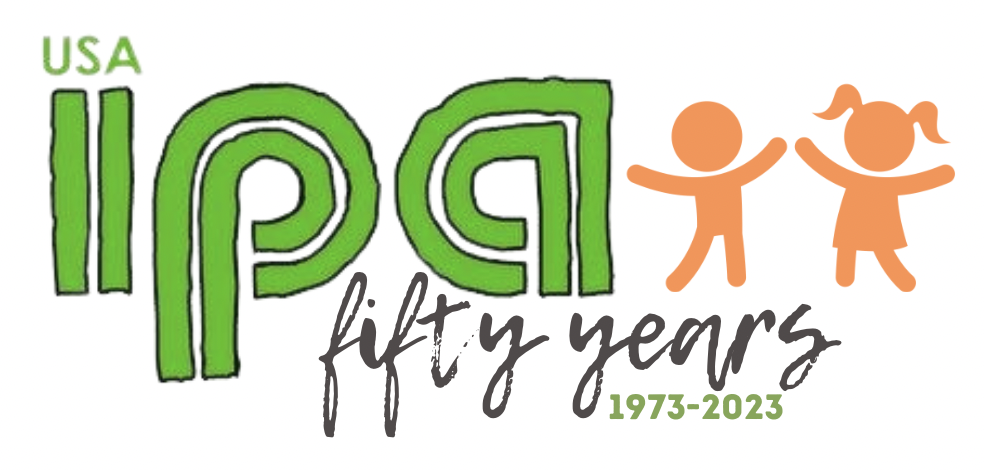At the 2023 IPA World Conference in Glasgow, Scotland, John McKendrick of Glasgow Caledonian University shared two collections of essays, Priorities In Play and Inspirationally Playful. (IPA USA membership is required to view the full publications. For log-in questions, please contact us here.)

As John states in Priorities In Play, “The idea behind this collection was to prime delegates in advance of the 22nd International Play Association Triennial World conference, held in Glasgow in June 2023. There was no need to stoke-the-fire, and seventy priorities were presented. The contributions come from far and wide, spanning seventeen nations spread across five continents. As with its companion collection, Inspirationally Playful, there are reflections from parents, playworkers, play advocates, academics, early years workers, and professionals from a wide range of disciplinary backgrounds.”
IPA USA President Debra Lawrence is among those published in Priorities In Play. The following is her essay, “Redressing The Play Deficit”.
Redressing The Play Deficit

Children’s lives have drastically changed since I was a child. Much more emphasis is now placed on readiness for the future. Play has been transformed in a wide range of settings, including home, early childhood programs, formal school settings, and the wider neighborhood. Some forms of play, such as outdoor play, recess play, risky play, and child-led play are being marginalized if not replaced with structured sports, structured recreation, tutoring, homework, and technology.
We need to develop a campaign to help others recognize that play is essential to healthy development. We need to protect childhood. We need to create an organized movement to promote child-initiated play. We need to facilitate access to risky play and natural environments and move away from using screen technology like Smart Boards, tablets, ipads, computers, and television to entertain or teach.
We must start with what is known about how the brain develops and our understanding of the importance of dispositions of learning. Bruce Perry, a neuroscientist and child psychologist, helps us understand that the foundation of healthy development is based on what he describes as the learning cycle.

For a child to reach their unique potential, gifted at conception, they must have rich and enduring opportunities to be curious, explore, make discoveries, gain pleasure from these discoveries, repeat them, master them, and increase their self-confidence. Play is the means to achieve this. In child-initiated play, as opposed to guided or structured play, children naturally progress through the learning cycle.
Play is the key to ameliorating the damage caused by traumatic events and lack of adequate nutrition. Play prospers when children feel safe enough to be curious and explore, and have warm, caring, and supportive relationships with the adults surrounding them. If the goal is for every child to reach their potential, then the focus should be on helping parents, educators, and policymakers recognize the need to fund basic needs and unstructured time for play.

